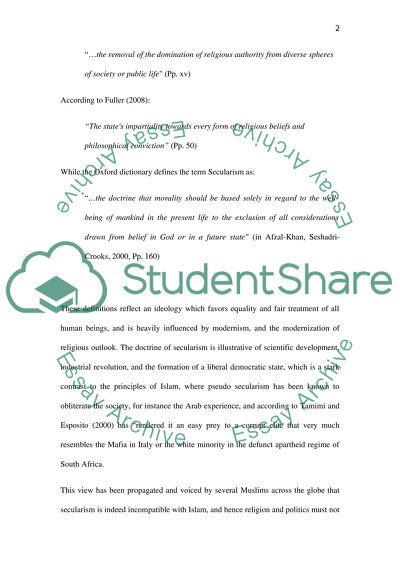Cite this document
(Islam and Secularism Are not Compatible Research Paper, n.d.)
Islam and Secularism Are not Compatible Research Paper. Retrieved from https://studentshare.org/politics/1560581-islam-and-secularism-are-not-compatible
Islam and Secularism Are not Compatible Research Paper. Retrieved from https://studentshare.org/politics/1560581-islam-and-secularism-are-not-compatible
(Islam and Secularism Are Not Compatible Research Paper)
Islam and Secularism Are Not Compatible Research Paper. https://studentshare.org/politics/1560581-islam-and-secularism-are-not-compatible.
Islam and Secularism Are Not Compatible Research Paper. https://studentshare.org/politics/1560581-islam-and-secularism-are-not-compatible.
“Islam and Secularism Are Not Compatible Research Paper”, n.d. https://studentshare.org/politics/1560581-islam-and-secularism-are-not-compatible.


